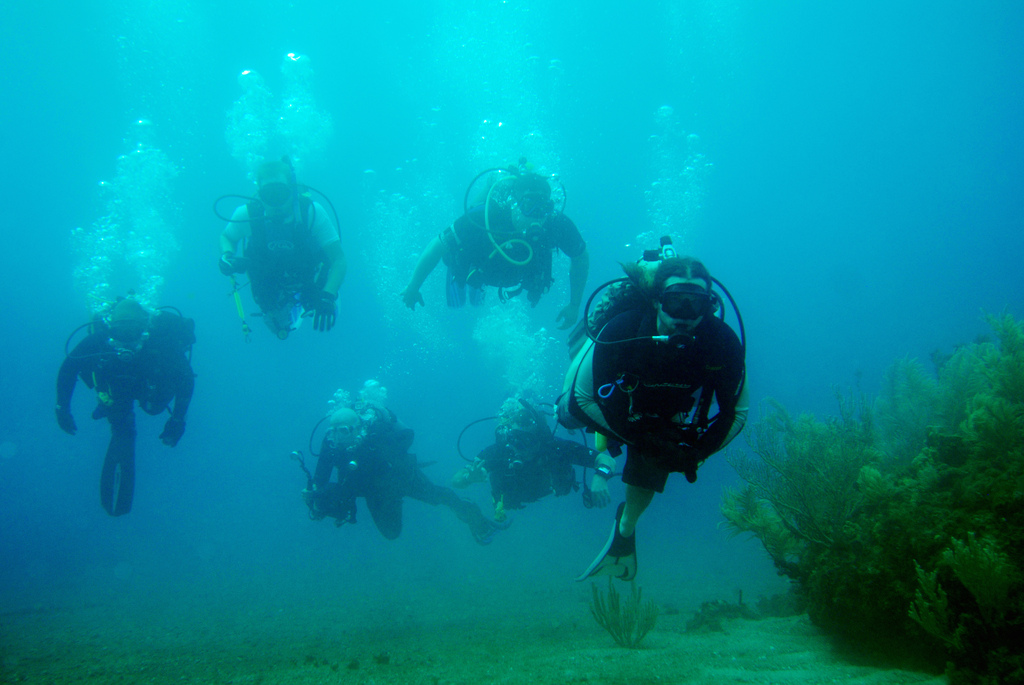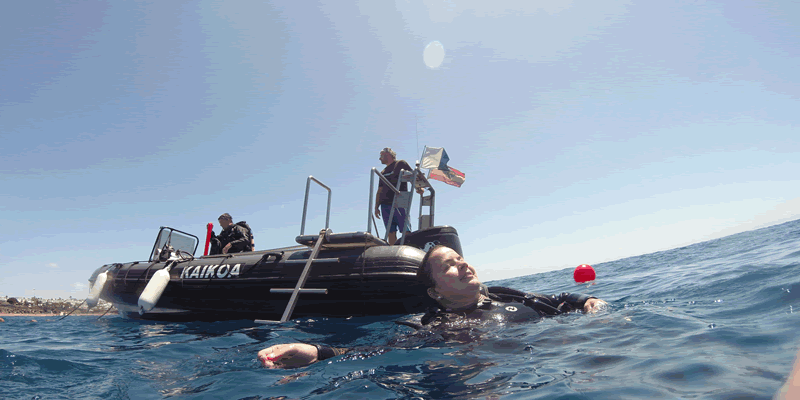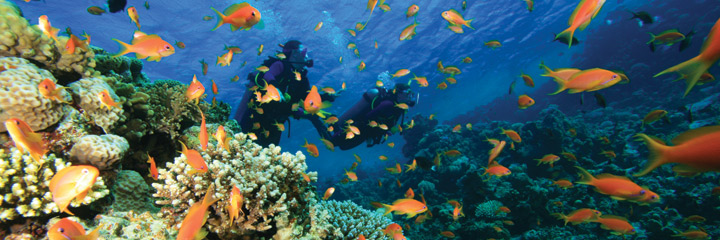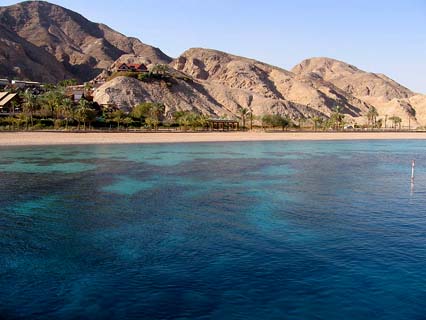It goes without saying that the two best known diving agencies for UK divers are BSAC – the UK based British Sub Aqua Club – and PADI – the US based Professional Association of Dive Instructors – but which is best? Being the more commercial and heavily marketed of the two, PADI is probably the more popular course provider, but many BSAC divers will tell you that their association offers more rigorous qualifications and a real sense of community.
Based in towns and cities throughout the UK, BSAC members tend to meet up to dive or socialise on a regular basis, acting as a social club for scuba divers, as well as a training agency. PADI, on the other hand, acts solely as a training facility and commercial business. There are, quite literally, thousands of PADI dive schools you can choose from, based within the UK and all over the world: you could even take your PADI qualifications from a Red Sea Liveaboard! Both BSAC and PADI qualifications are recognised internationally.
Even many non-divers are aware of PADI’s, entry level course – PADI Open Water. After studying the theory and core techniques behind scuba diving in a series of classroom sessions, and practicing key scuba skills in a swimming pool, PADI divers then progress to open water and are required to complete at least four open water dives, in order to qualify. Providing you’re sharp enough to absorb and apply theory, and are adept at learning and practicing new skills, it’s possible to complete the whole thing in just three or four days. BSAC’s equivalent of PADI Open Water is their Ocean Diver qualification which, similarly, involves practicing theory and pool skills first, before making open water dives, with BSAC specifying five or more; the BSAC course will take more like 5 or 6 days to complete.
When accompanied by another qualified diver, the PADI Open Water qualification will then certify you to dive to a maximum depth of 18 metres, anywhere in the world, from a Cornish beach to a Red Sea Liveaboard. BSAC’s Ocean Diver also certifies new divers to explore international waters but will allow an extra couple of metres, by qualifying its graduates to reach depths of up to 20 metres.
BSAC courses tend to be slighter cheaper and longer than PADI’s, and many argue that BSAC training is more thorough. However, PADI offers a slightly faster way to get qualified. From the ‘Bubblemaker’ to full blown instructor, PADI can carry you all the way through your diving career, with specialisms such as Underwater Photography and Wreck Diving available along the way. BSAC courses also lead you through increasingly challenging qualifications, but culminate in the well-respected ‘First Class Diver’ certification, rather than PADI’s more commercial route of gaining employment as a Dive Instructor.
So, if you’re a new diver that’s trying to decide between the two, then international recognition need not be a concern – either a BSAC or a PADI qualification will allow you to dive on that Red Sea Liveaboard trip or Great Barrier Reef adventure. Time may be a decider – those who want to qualify a bit faster may wish to choose PADI, as well as location – if you want to take a course abroad, then PADI is also the one for you. On the other hand, those that are more interested in UK diving and joining a community of divers may prefer BSAC. But starting with either provider need not be a lifetime commitment, with both BSAC and PADI respecting each other’s qualifications, divers of either school are welcomed to transfer between the two. The main thing is to get yourself underwater!
Tags: Red Sea Liveaboards, Red Sea Live Aboards, Maldives Liveaboards, Maldives Live Aboards, Red Sea Diving, Maldives Diving, Egypt Diving, Egypt Dive



